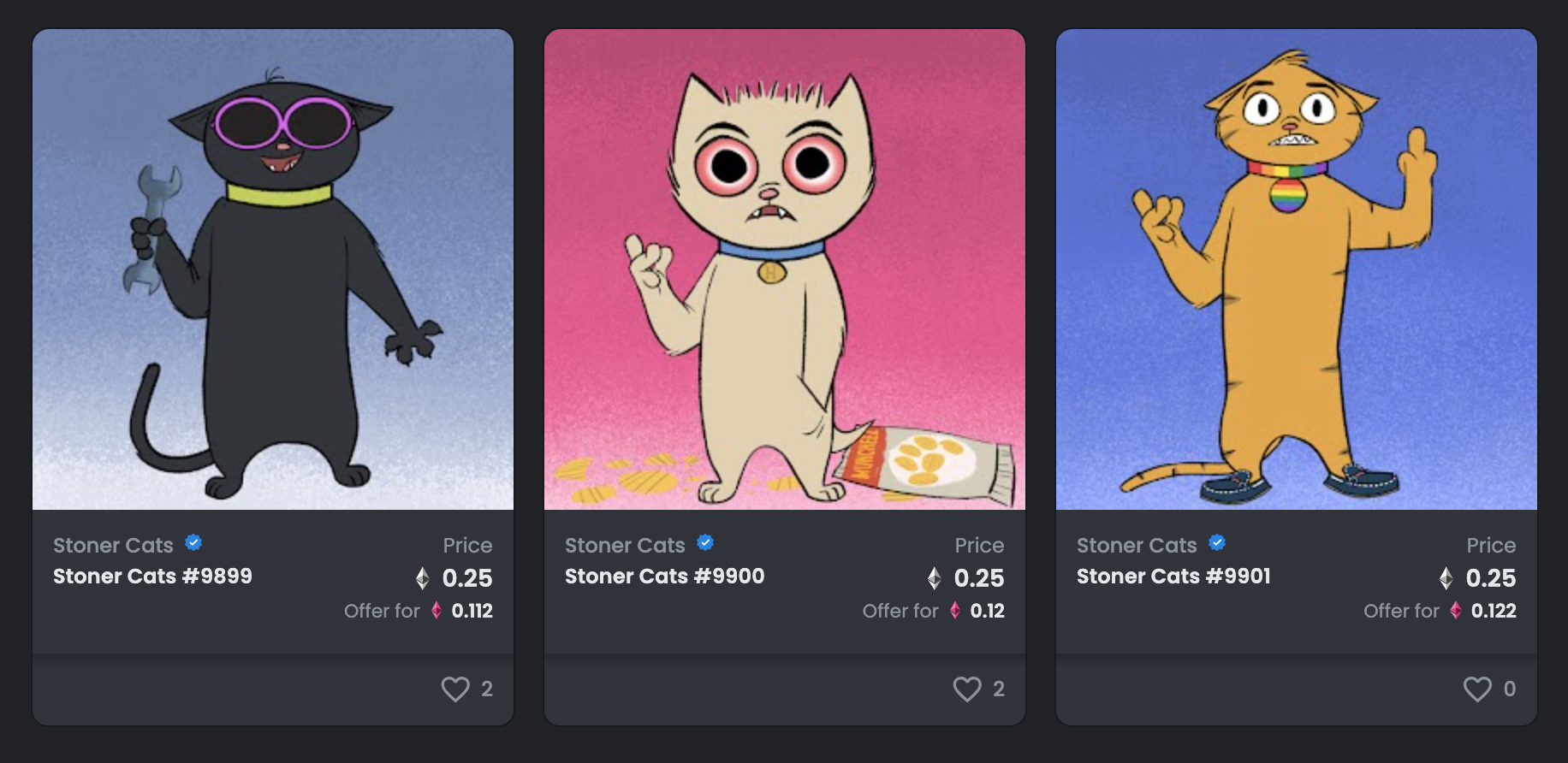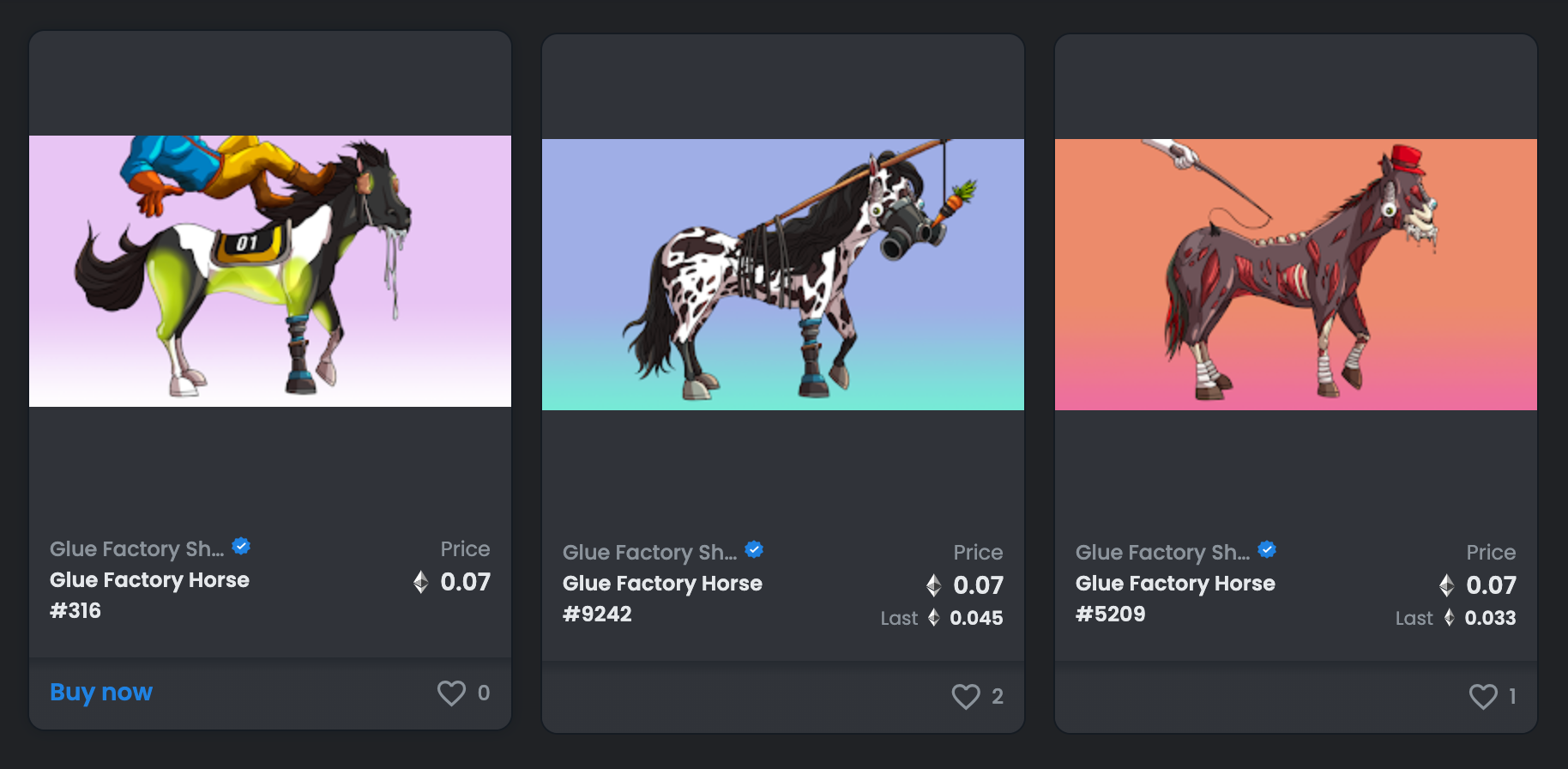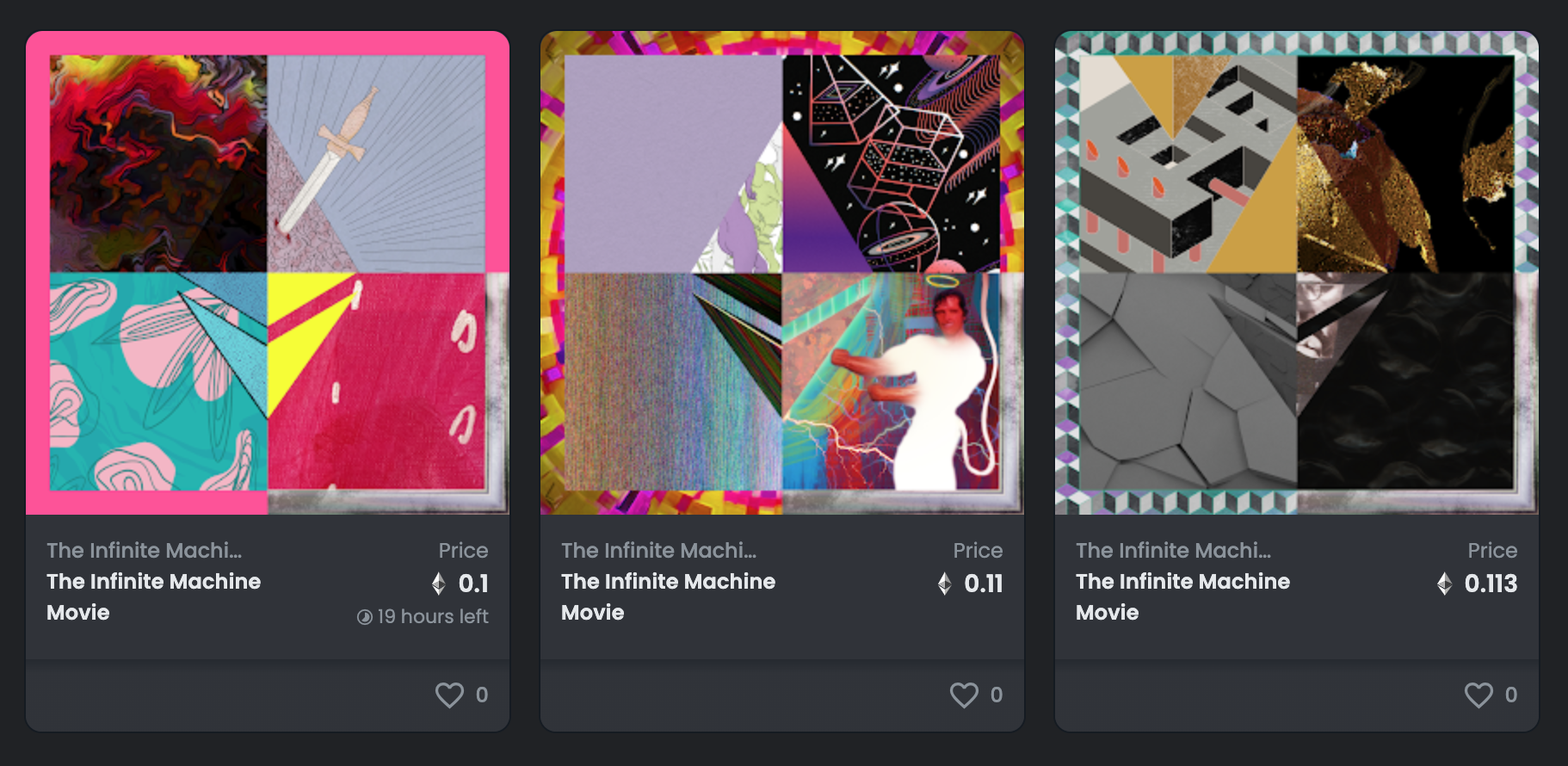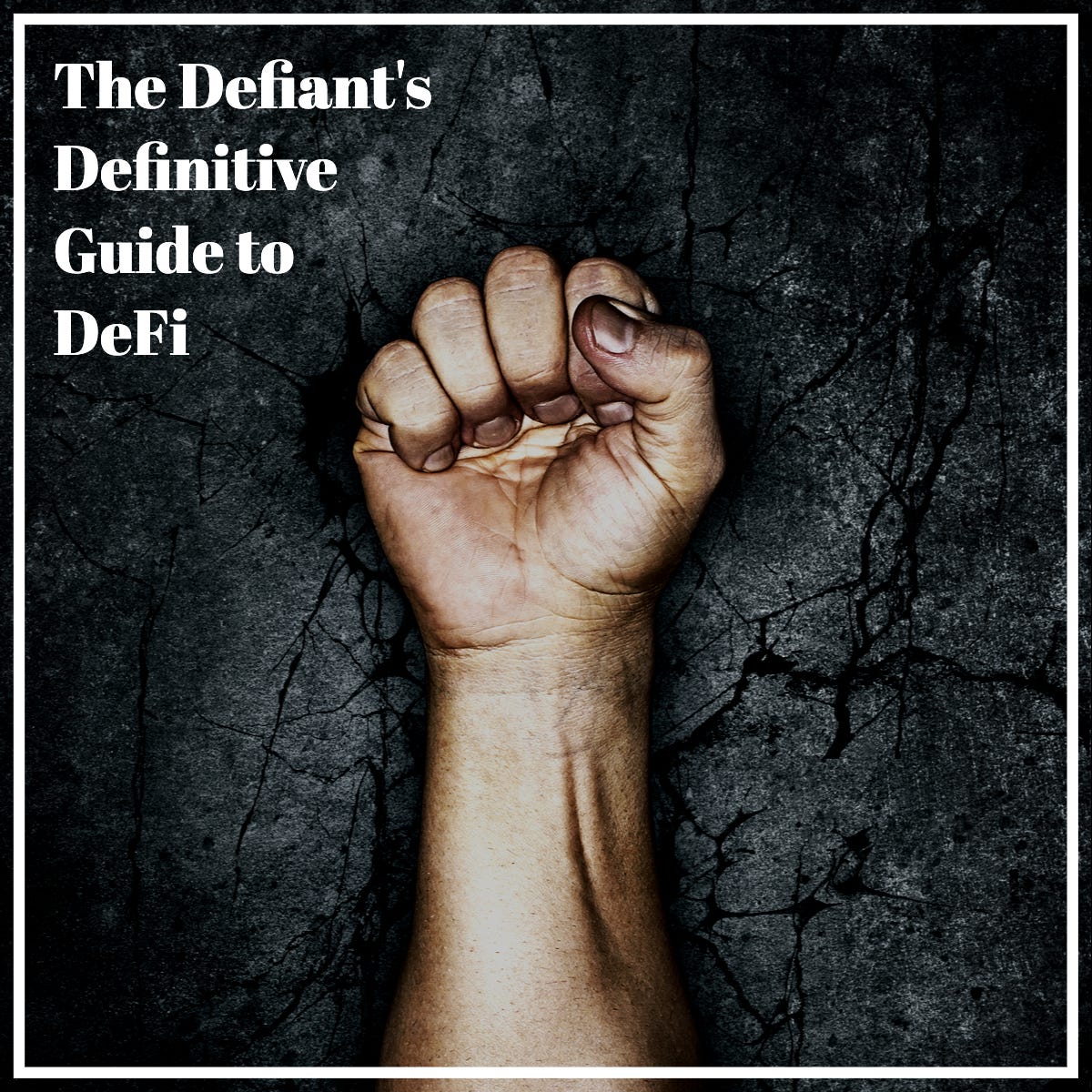This reporter fell deep into the crypto rabbit hole a number of months ago, never to emerge. That's because the world of blockchain, cryptocurrency, and NFTs is more like an infinite series of interconnected worm holes: as full of possibility, and about as easy to navigate. But at least I have plenty of company.
“NFT” is the word of the year for 2021, according to the Collins Dictionary, and blockchain technology is projected to take up as much as 33% of the global entertainment market share by 2024. This year saw an onslaught of big name buy-in from entertainment brands like Fox, Warner Brothers, Netflix, HBO and Disney. Bored Apes, pixelated punks, toads, and whales are making millions, and Hollywood wants in.

Blockchain is still largely uncharted territory, and entertainment projects are leveraging the technology in different ways. Some use NFTs as a merchandizing strategy to sell collectibles to fans, some as a crowdfunding tool, and others as a token allowing access to their content.
But my favorites are those shows telling a story around an issue the creators care about, while leveraging the power of NFTs for real-world impact. Here are three shows touching on important issues that are generating their own funding through NFTs, then sharing the wealth with the causes that inspired them.
Stoner Cats - NFT Collection & Animated Series

Ah, Stoner Cats. What’s not to love about this innovative and probably well executed idea? I say probably only because I haven’t seen the show - yet - because I don’t own an NFT from the Stoner Cats collection. Let me back up.
Stoner Cats began as a web series created by three friends: Chris Cartagena, Sarah Cole, and Ash Brannon. The show is about five house cats who develop a “higher consciousness” through exposure to their elderly owner’s medicinal marijuana, then realize she needs help navigating the dangers of living alone with Alzheimer’s. Their motto: “With great flower comes great responsibility.”
Mila Kunis discovered the project, and with the power of her production company, Orchard Farm Productions, joined the original creators to develop six episodes, all while pioneering the use of blockchain technology to fund and access the show.
In order to watch Stoner Cats, one must buy a Stoner Cats NFT, hold it in their crypto wallet, then connect to the show’s website to stream directly. The floor price for a Stoner Cats NFT (i.e. the cheapest available) is currently .19ETH (or around $700 at today’s exchange rate). Adorably referred to as TOKEns throughout the Stoner Cats website, these NFTs function as content access tokens, unlocking the play button for authorized owners only. This is the first show I’ve heard of using NFTs in this way.
The approach has been wildly successful, with Stoner Cats generating over 7,200ETH in sales, according to popular NFT marketplace Open Sea. That’s nearly $27 million. It's a significant milestone as it suggests a future in which creatives might successfully fund, produce, and distribute content completely independently.
Plus, how often do you see shows spreading Alzheimer's awareness? The project has generated a respectable sum in support of a cure too. Charities for Alzheimer’s and other age-related illnesses will receive 1% of all proceeds, in honor of the show’s (perhaps too) aptly named cat-owner, Ms. Stoner.
There are currently two episodes available to stream, with four more pending release. Characters are voiced by Kunis herself, as well as Ashton Kutcher, Seth McFarlane, Jane Fonda, Chris Rock, and one of the co-founders of Ethereum, Vitalik Buterin.
The Glue Factory - NFT Collection & Series in Development

The idea for The Glue Factory show and its accompanying NFT collection came from a woman who loved horses and her husband who loved NFTs. She watched him buying and selling pricey images online that looked like animal cartoon characters, and wondered whether some of the profits could be used to promote animal welfare. Together they conceived of a dark animated comedy series highlighting the horrific abuses too many horses endure.
A collection of 10,ooo tortured horse NFTs was created to fund development of the project. The artwork is a bit like a horse version of the youth-scarring Garbage Pail Kids. According to Open Sea, the collection has generated over 1.2k ETH in sales as of this writing, which is roughly $4.5 million. (Full disclosure - I own one. Gotta help the horses.)
Naturally, the success of the NFT collection helped the show gain traction, and it's now signed a handful of experienced writer/actor/producers to the project: Colin Dunn (Key and Peele, Parks and Recreation), John Barinholtz (Superstore, Veep), Katie Rich (SNL, Chicago Party) and Rob Belushi (How I Met Your Mother, Chicago P.D.).
As promised, a portion of The Glue Factory NFT proceeds were earmarked for a non-profit called Red Bucket Equine Rescue. According to the collection website, so far they’ve donated about $315k to the organization, which they describe as “committed to saving and serving the slaughter-bound, high-risk and desperate horses that sparked this crazy idea.”
The Infinite Machine - Book, NFT Collection & Film Adaptation
Camila Russo, creator of popular defi newsletter The Defiant, wrote a book about the story of Ethereum called The Infinite Machine, now being adapted into film. Earlier this month, Russo and her team released a collection of 2,100 NFTs to raise initial funds for the film, successfully selling out in just over 24 hours to the tune of about $670,000. The NFT images are colorful, beautiful, and strange.

In January, The Infinite Machine Collection will release another batch of NFTs to continue raising funds for the film. The plan is to eventually sell 10,499 NFTs total. The first batch of artwork comes from 36 artists who will share in the proceeds. Russo told The Defiant, “[these artists] live in oppressive regimes and can benefit from decentralization the most. I’m extremely proud this initial sale is already making a big impact on their lives.”

Russo is a true believer in the power of decentralized finance and the transformative power of blockchain technology. She has already built a formidable information company educating the public on all things blockchain with her newsletter, book, and podcast. Now, here she is selling NFTs on the Ethereum network to raise money for a film about Ethereum.
Subscribers to The Defiant can see it's a labor of love, and that an enormous amount of painstaking work goes into creating its content. The Defiant has an extraordinarily thorough guide to decentralized finance (linked above) that lays out the details of this complex world in a step-by-step primer available to all.
NFTs for (Maybe Not All?) Good
Unfortunately, NFT sales may be doing more than supporting art and positive change. A significant portion of NFT sales run on the Ethereum blockchain, which has been heavily criticized for having too large a carbon footprint, due to it's proof-of-work system. Simply put, Ethereum requires a lot of computing power, which could translate to high energy consumption. All that computing is expensive too, and users sometimes are stuck paying high fees (called "gas").
Supporters of Ethereum, however, often counter that the technology is new and still evolving, and that the energy issue will soon be resolved. Numerous Ethereum alternatives have sprung up too, like the Ethereum-compatible Polygon, offering low energy, "gas" free transactions which rely on proof-of-stake methods, rather than proof-of-work.
It's far too soon to know what the legacy of NFTs will be, but I'm hopeful it will be one of greater independence for creative expression. The early emergence of projects like the ones highlighted here, are a good sign for what's to come.
